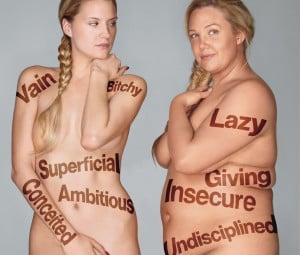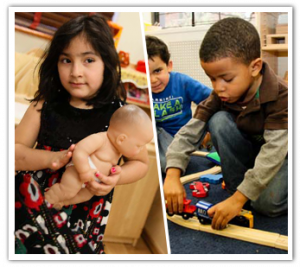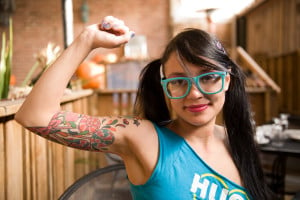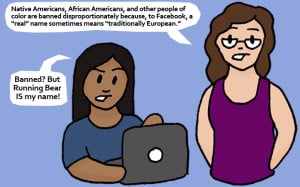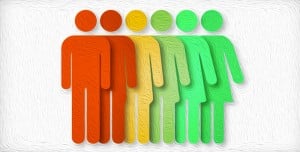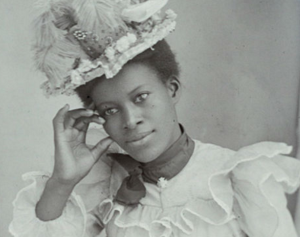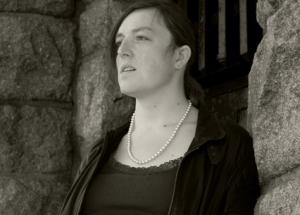
Source: Yuli Scheidt
Body image activism is my thing.
I write about beauty standards, I make videos about media literacy, I run an online eating disorder support group, and the quickest way to piss me off is to tell me that body image isn’t an important feminist issue.
Within the body-positive movement is my community – and my whole heart.
But love, I think, needs to include critical thinking. The objects of our passions need to be evaluated.
And as much as I love the body-positive movement, I also think that it could use some improvements.
So here are five new directions that I’d like to see it take.
1. Deconstructing Beauty as Valuable
I’ve noticed through preaching this message that people get really upset when you suggest that beauty should not hold the value that it does, so let me be clear.
I am not arguing that humans do not (or should not) have an instinctual attraction to beauty.
Beauty is valuable to us, both on psychological and cultural levels. That is undeniable.
Rather, my argument is that we assign more value to it than it’s really worth – that we need to do more critical analysis around why we value it and whether or not we should.
After all, isn’t that what gets us into trouble in the first place – holding beauty up as our most worthwhile attribute?
If we didn’t 1) think of beauty as important and then 2) create narrow parameters within which beauty is defined, maybe as a whole, we’d have fewer body image issues.
And the body-positive movement is awesome in its attempts to eradicate Problem #2 by broadening the definition of beauty to include more people a la mantras like “All Bodies Are Beautiful!”
After all, beauty is in the eye of the beholder, right? And therefore, everyone has the ability to be gorgeous. All bodies are inherently awesome before social conditioning comes along and tries to convince us otherwise.
Yes. Of course. That’s true.
But…
The problem with focusing all of our energies on Problem #2 is simple: It still centers our conversations on the need to be and feel beautiful.
And while I understand how this line of thinking can be helpful to people – especially those who had never considered that beauty could apply to them – and therefore believe that it has worth as an approach, the question that I have is this:
Why are we spending more of our energy in the body-positive community trying to convince everyone that they’re beautiful, rather than deconstructing the notion that we should be valuing beauty in the first place?
I propose a little less energy redefining the construct and a little more energy destroying the construct completely.
Because deconstructing beauty’s value – not necessarily to eradicate it, but at least to examine it – would likely serve us better in the long run.
2. More Than Just a Body
When the new Survivor season – Brawn vs. Brains vs. Beauty – started, my partner asked me which team I’d be on.
I raised an eyebrow, as if to ask “What do you think?”
And he responded, confidently, “Brains.”
“Right answer,” I said.
As feminists, we’d likely all agree that we are more than just our bodies. To borrow a phrase from the ladies at Beauty Redefined, “You are capable of much more than looking hot.”
And we need to be valued for these attributes.
However, our psyches are wounded.
We think in terms of our bodied selves, rather than our bodies being a part of our human experience. In this way, we are detrimentally fragmented. We are not whole.
And when we focus body-positive messages on weight and shape, I’d argue that we’re further fragmenting ourselves.
“Healthy Is the New Skinny,” for instance, still creates a standard regarding intake. “Focus on What Your Body Can Do” still centers our self-worth on one part of ourselves.
I propose that we create and distribute more messages that help us see ourselves as whole beings (of which our bodies are just a part) rather than keeping our bodied selves at the focus of the conversation.
Because if we don’t work toward taking focus away from the obsessions that hinder us, then we perpetuate a hierarchy that places our bodies at the top.
3. Diversifying the Discussion
When we are talking about bodies, though, we need to take into consideration the ways that our intersecting identities shape the way that we see ourselves and how others see us.
We need to be talking about fat discrimination and thin privilege. We need to discuss eating disorders and media influence and body snarking.
But if our tunnel vision limits us only to see those issues and white, straight, able-bodied cis-females, then who are we really helping?
A small portion of society. And that’s not good enough.
As a culture, we are moving toward valuing diversity.
High school GSAs are popping up all over the country. Trainings in cultural competency are becoming more commonplace in workplace environments. Hell, even my city of Philadelphia has the goal of becoming the most LGBTQ-friendly city in the world!
Diversity seems to be something that people are really getting behind.
But in theory. Not so much in practice.
We may say that we like the idea of diversifying, but if we’re not actively working towards it with conscious intentions, then we still have a long way to go.
And if your idea of spreading body love strictly means adhering to the “Fat vs. Thin” binary and passionately reblogging images of white women on Tumblr, then I think we need to talk.
Body-positivity isn’t just about understanding that bodies come in all shapes and sizes and that all of them are equally valid – although that’s certainly a part of it.
Body-positivity is about understanding how our experiences within ourselves and in the world differ. Body-positivity isn’t about homogenizing those differences, but analyzing them.
Body-positivity is about understanding that we need a basis of knowledge for how ableism, racism, colorism, cissexism, and heterosexism play into our concept of beauty and how those forms of oppression deeply affect the way that we experience our bodies.
And we can’t just put a “Love Yourself!” band-aid on that, much less a “We Are All Equal!” one.
I propose diversifying the discussion – and really diversifying it, in all of its nuances and challenges – because understanding hierarchies of power and how they affect our daily lives needs to be central to our work.
4. More Coaching, Less Pushing
When I surveyed my friends, asking which changes they’d like to see in the body-positive movement, one of my closest pals wrote to me, “I need people to stop telling me to just love my body.”
“It’s a journey,” she continued. “And I think a lot of people in the movement like to think that everyone is at the same place in their journey. I think it’s patronizing. And it usually just makes me feel worse.”
And with that, I scratched out the topic that was originally going to be my fourth point (it’ll make its own article someday) and added this one.
Because she’s right.
And I get it.
We want people to come to terms with their body-negativity. And we want people to love themselves for who they are and what they look like. We want people to live full, authentic lives without the baggage of self-hate.
Yes.
But the question is: How do we do that? How do we foster body acceptance? And how can we, as people further along in the journey, lift others up?
Blanket solutions like “Learn to love yourself!” aren’t helpful. They aren’t helpful because they’re a what without the how.
And when we suggest to people that there’s something they should be doing, and that if they’re not doing it, then they’re in the wrong (or, at least, victims at the mercy of our patriarchal, fatphobic culture), without giving them the tools to do the work, then we’re just stressing them out.
I’m a teacher. I can’t ask my students to complete a task that I haven’t taught them to do. That’s setting them up for failure.
The body-love message is an important one to spread.
But what we need are more body-love coaches.
So I propose that we take a deeper look at what body-positivity looks like, that we start answering the harder questions, and that we come up with real solutions that people can apply to their everyday lives.
Because a body-positive attitude is useless if we don’t have the skills to achieve our goals.
5. Prevention As Well As Intervention
Like most of us, I fell into body-positivity because I was sick, not because I was healthy, and I needed something to intervene before I self-destructed.
Interventions are necessary. We need to do crisis control when all hell breaks loose in our psyches. We need, above all else, to practice self-care.
Our own personal healing comes first.
But then what?
I often joke – as if one can really joke about these things – that I do body image activism not necessarily for myself (since, I argue, I’ve already been screwed), but for future generations.
I grew up in a cultural climate where thinness was ideal, where my mother was (and still is) always on some diet or another, where no one ever once told me that it was okay to love myself as is.
And I’ve had to work through that.
But I’m an activist because I don’t want anyone else ever to have to work through this again.
And we need more amazing people who are up for that challenge – not just stopping at their own interventions, but going out and doing prevention work.
Prevention work doesn’t have to be time-consuming. It doesn’t have to be all-encompassing. It doesn’t have to be your career.
Prevention work can be as simple as holding conversations about what beauty means and how we can deconstruct that meaning.
It can be as basic as bringing up our own children to believe in the power of their whole selves and not just their bodies.
Prevention work is being done every time that you help someone else understand their own worth and encourage them to spread the word to others.
We need to remember this.
I propose that we wholly dedicate ourselves to the idea that our day-to-day interactions can radically change the world for future generations, that we can incite a paradigm shift.
Because I really believe in the possibility for change.
Because I really believe that the body-positive movement needs it and can do it.
***
In the grand scheme of things, the body-positive movement is in its adolescence. It’s growing. It’s taking on a mind of its own. It’s becoming.
And we have the opportunity to foster its evolution into something deeper and more far-reaching.
We have that chance.
Seize it.
[do_widget id=”text-101″]
Want to discuss this further? Login to our online forum and start a post! If you’re not already registered as a forum user, please register first here.
Melissa A. Fabello, Editor of Everyday Feminism, is a domestic violence prevention and sexuality educator, eating disorder and body image activist, and media literacy vlogger based out of Philadelphia. She enjoys rainy days, Jurassic Park, and the occasional Taylor Swift song and can be found on YouTube and Tumblr. She holds a B.S. in English Education from Boston University and an M.Ed. in Human Sexuality from Widener University. She can be reached on Twitter @fyeahmfabello. Read her articles here and book her for speaking engagements here.
Search our 3000+ articles!
Read our articles about:
Our online racial justice training
Used by hundreds of universities, non-profits, and businesses.
Click to learn more









